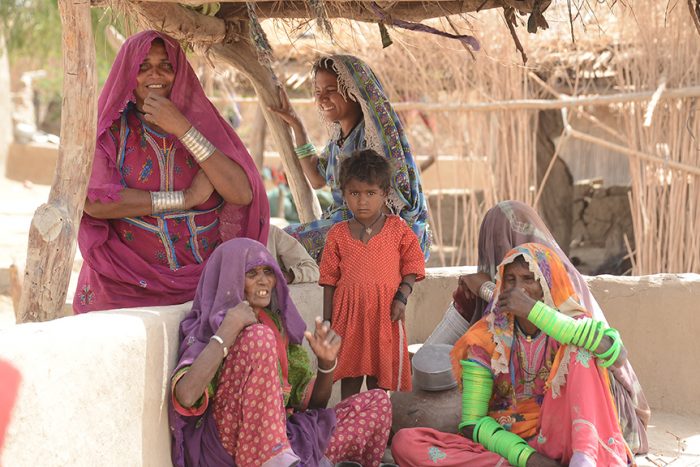Upholding Humanitarian Standards: Applying Quality and Accountability Standards through the Project Life
Follow the Learning Journey on Quality, Accountability and Safeguarding
Update on Virtual Learning Session I: LEARN
The second session of this Learning Journey on Quality, Accountability and Safeguarding, facilitated by Sylvie Robert, included a panel discussion which was joined by Wassila Mansouri, from Sphere and Bonaventure Sokpoh, from the CHS Alliance to share the basics, few updates and best practices of applying quality and accountability standards such as the Sphere standards, the Core Humanitarian Standard (CHS) and the Humanitarian Standards Partnership (HSP).
Sylvie introduced the session saying, “Today, we will update each other on how various initiatives can be taken at the field level to enhance quality and accountability through increased community engagement. It will be interesting to have an update from the Core Humanitarian Standard (CHS), Sphere Standards and the Humanitarian Standards Partnership and gather views on how we are – or could – practically apply these in the best possible way.”
40 humanitarian and development practitioners from Asia and the Middle East participated in the half-day Virtual Learning Session ‘UPDATE’.
Bringing the Core Humanitarian Standard & Sphere Standards Closer to People We Serve
While discussing the content of the Core Humanitarian Standard, Bonaventure shared, “The Standard places people affected by crisis at the centre of humanitarian action, and it sets out nine Commitments that organisations and individuals involved in humanitarian response can use to improve the quality and effectiveness of the assistance they provide. The CHS has been built upon a bottom-up approach that contributes to harmonising and strengthening the coherence of humanitarian actions. We should apply the CHS not only to improve the organisation’s accountability to people affected by disaster, conflict or poverty but also to improve the efficiency, effectiveness and impact of the organisation’s work.”
Referring to the Sphere Standards, Wassila said, “Sphere has always put people at the centre of humanitarian action, recognizing that their active engagement is essential to ensure assistance meets people’s needs and supports them in their recovery. There is stronger wording throughout the Sphere Handbook 2018 that recommends working with affected people at all stages of the response instead of simply consulting them.”
Applying CHS to local contexts. Relevant Commitment and Key Actions:
“All the commitments are applicable in the context of the Syrian community and the organisations working on ground in Syria. However, our discussion identified Commitment 8[1] as most relevant as achieving this commitment will lead to fulfilling the other commitments. Consequently, one of the key actions to assign funds to strengthen the role and build capacity of individuals involved in MEAL[2] as their efficient involvement in the implementation of the standards will allow organisation to efficiently work towards achieving the standards and ensure quality, accountability & safeguarding. In addition, opportunities such as sessions, seminars and virtual events should be conducted where organisations can share experiences and best practice to increase learning.” B. S. from Syria
“We have seen that many organisations in Afghanistan are developing and enforcing policies and guidelines adhering to the Core Humanitarian and Sphere Standards. Organisations have mainstreamed the standards in their Code of Conducts and Safeguarding & Protection Policies. The mainstreaming of the standards in the project planning and designing have empowered communities and increased their participation in the interventions,” Dr. Naqibullah D. from Afghanistan
“Continuous awareness raising is mandatory for humanitarian aid workers, especially individuals working directly with the communities. Actions should be taken to make the standards available in local languages so that the communities can understand and relate to the commitments effectively.” Samreen Qaimi from Pakistan
Engaging communities while applying Sphere and the Humanitarian Standard Partnership (HSP)
“Local structures formed in the communities such as Steering and Village committees allows increased community engagement and ownership. Some organisations in India are conducting Community Accountability Assessment to assess, design, implement, monitor and evaluate community engagement and accountability activities in support of programmes and operations, especially under the themes of safeguarding and PSEAH.” Tooba Siddique from Pakistan
“Communication with the communities is key. It gives an open channel for communities and relevant stakeholders to convey the needs and ways to address the needs. Focal Group Discussions, awareness sessions, capacity building workshops and direct interviews are some few channels, which allows communities to learn about the process and relevant details of the planned intervention. Volunteers from the communities is another effective way to ensure community engagement in project interventions.” D. J. from Syria
“Communities should be motivated to be part of the impact that the projects aim to achieve. Motivation can be built through capacity building opportunities and their involvement in decision-making processes. Engaging in project interventions provides community members with the opportunity to become active members of their community and has a lasting, positive impact on society at large. It also helps communities develop civic and social responsibility skills and become more aware of what their community needs.” Fawzia J. from Afghanistan
Follow our Twitter Handle @communitywsasia for Live Updates from this Learning Journey
- Communities and people affected by crisis receive the assistance they require from competent and well-managed staff and volunteers.
- Monitoring, evaluation, accountability, and learning (MEAL)







